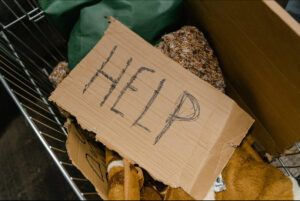Lascia che il cibo sia la tua medicina e la medicina sia il tuo cibo,” disse Ippocrate, il padre della medicina occidentale nel V secolo a.C. Questa antica saggezza sottolinea il profondo legame tra cibo e salute. Allo stesso modo, Brillat-Savarin, nel suo classico libro “La fisiologia del gusto” (1825), enfatizzò l’importanza del cibo nel plasmare la nostra identità: “Dimmi cosa mangi e ti dirò chi sei.” Attraverso i secoli, il discorso sul cibo si è evoluto, abbracciando angoli della nutrizione, della natura, della cultura, del bene sociale, della spiritualità, del desiderio e dell’appeal estetico. Oggi, il cibo trascende la mera sussistenza; incarna una questione profondamente morale.
Allarghiamo il nostro sguardo limitato all’immagine più ampia. Non perdiamo di vista i nostri bidoni della spazzatura pieni; non è difficile vedere un paradosso di proporzioni epiche. Da un lato, assistiamo a una ricchezza e abbondanza senza precedenti, mentre dall’altro milioni sono sull’orlo della fame. Di fronte a conflitti, cambiamenti climatici e lotte politiche, circa 270 milioni di persone sono pericolosamente vicine alla fame. Ancora più allarmante è il fatto che 30 milioni tra di loro dipendono interamente da noi per la loro sopravvivenza. Come è arrivata l’umanità a questa svolta, dove l’eccesso coesiste con la privazione in contrasto così netto?
Considera questa giustapposizione: il mondo vanta uno straordinario patrimonio di 40 trilioni di dollari, eppure solo 5 miliardi di dollari potrebbero salvare quelle vite dalla fame. La definizione delle Nazioni Unite di un individuo “affamato”, basata esclusivamente sull’apporto calorico di un individuo sedentario in un anno, trascura il duro lavoro fisico che molte persone impoverite sopportano. Questa definizione ristretta sacrifica la salute umana per convenienza statistica, lasciando fuori dal campo degli sforzi di assistenza innumerevoli individui che soffrono di gravi carenze vitaminiche e di nutrienti.
L’atroce ironia è che mentre alcuni muoiono di fame, altri si concedono troppo. Lo spreco alimentare aggrava la tragedia della fame, con circa un terzo di tutti gli alimenti prodotti globalmente che finiscono nella spazzatura. Nelle nazioni affluenti, dove il consumo è rampante, l’eccesso alimenta lo spreco mentre milioni soffrono la fame. In effetti, i tassi di obesità sono in aumento anche nei paesi fortunati con la possibilità di una dieta varia e deliziosa, sottolineando la disconnessione tra abbondanza e necessità. Allo stesso tempo, mentre i consumatori seguono diete alla moda e soluzioni rapide per la perdita di peso, sperperano risorse che potrebbero alleviare la fame altrove. Pertanto, il consumo eccessivo non solo mette a rischio la salute individuale, ma sforza anche i sistemi sanitari e perpetua un ciclo di spreco.
Ma cosa alimenta questo sovraccarico? Non è solo una questione di scelta personale, ma è profondamente intrecciato con fattori psicologici e strategie di marketing adottate dalle aziende alimentari. Il marketing alimentare capitalizza sulle nostre vulnerabilità emotive, promettendo felicità, appartenenza e realizzazione. Tuttavia, queste promesse sono spesso vuote, progettate per sfruttare le nostre vulnerabilità a scopo di lucro, mantenendoci quindi agganciati al gioco del marketing, che sfrutta non solo le nostre emozioni ma anche le nostre abitudini, le necessità di salute e i ricordi nostalgici. Pertanto, imparando a riconoscere i trigger emotivi ed educandoci; riconoscendo l’influenza delle abitudini, dei ricordi dell’infanzia e della nostalgia sulle nostre scelte alimentari, possiamo riacquistare il controllo sulle nostre decisioni e fare scelte consapevoli.
Oltre alle implicazioni etiche, il pedaggio ambientale dello spreco alimentare è altrettanto allarmante, con risorse terrestri, idriche ed energetiche sprecate su una scala senza precedenti. Le pratiche intensive di agricoltura contribuiscono alla deforestazione, alla perdita di biodiversità e alle emissioni di gas serra, aggravando il cambiamento climatico e minacciando gli ecosistemi. La produzione agricola su larga scala, guidata dalla domanda di carne e dalla domanda eccessiva di alcuni frutti, cereali e verdure, accelera ulteriormente il degrado ambientale, portando a conseguenze devastanti sia per il pianeta che per i suoi abitanti, con la displa…
In questo contesto, il concetto di “Felice Decrescita”, teorizzato dall’economista Serge Latouche, assume un significato aggiuntivo. Propone un approccio bilanciato al consumo, favorendo la riduzione delle merci non necessarie pur continuando a privilegiare beni essenziali e prodotti locali. Incoraggia a sostituire alcune merci con alternative fatte in casa se migliora la qualità e riduce l’inquinamento, lo spreco e i costi. Questa filosofia rappresenta uno spostamento culturale lontano dalla crescita incessante verso un focus sul benessere e sulla sostenibilità. Sottolinea l’innovazione tecnologica, la cooperazione rispetto alla competizione e la riallocazione del tempo verso attività e relazioni significative. In sostanza, la “Felice Decrescita” offre una visione di un futuro più sostenibile e appagante sia per le persone che per il pianeta.
La sfida è riconsiderare il nostro rapporto con il cibo, favorendo uno spostamento verso la sufficienza, la condivisione e la responsabilità collettiva: queste sono soluzioni tangibili per combattere lo spreco mentre favoriscono il collegamento comunitario e la resilienza, consentendoci di colmare il divario tra abbondanza e fame, garantendo che nessuno rimanga senza mentre le risorse vanno sprecate.

Ig – @fairness_mag





